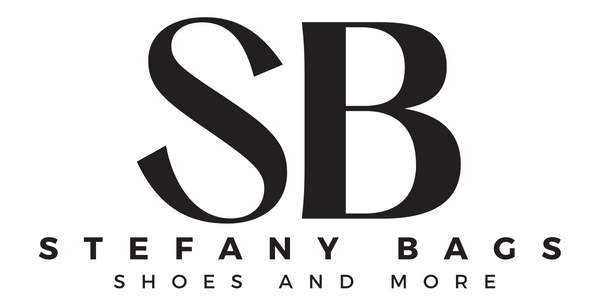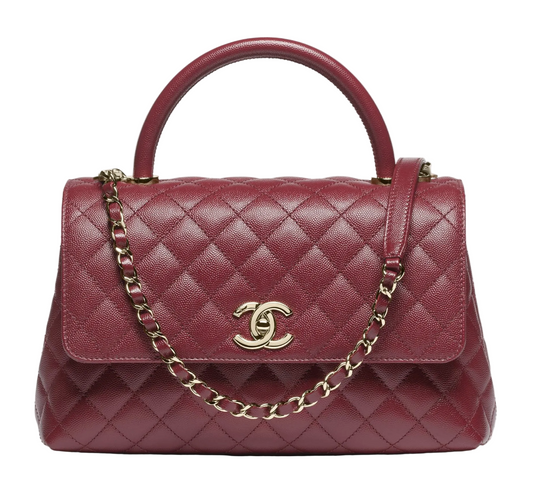
Revolutionizing Luxury The Rise of Boutique Resale
Stefany BagsShare
The burgeoning luxury resale market, now valued in the billions, has become a vibrant arena for sellers and buyers alike, driven by a quest for authenticity, sustainability, and personalized service. This surge has notably shifted consumer preference towards online private stores, offering a distinct alternative to the broad, often impersonal reach of traditional online marketplaces. As we delve into this transformative landscape, it's essential to compare the unique challenges and opportunities presented by different vintage markets—watches, jewelry, clothing, and bags—each with its own set of dynamics for resellers and business owners.
Watches present a high-stakes market, steeped in the need for expert authentication and significant investment. The allure of vintage timepieces, coupled with their potential as investment pieces, sets a high bar for entry but promises rewarding returns for those with the requisite knowledge and expertise. The digital realm offers varied platforms for watch sales, from consignment in brick-and-mortar stores, which offer the tangible engagement with pieces, to online auction houses with their global reach, though often at the cost of exclusivity and higher fees.
Jewelry, akin to watches, navigates a market rich in precious metals and stones, demanding rigorous authentication and quality assurance. The online selling points for jewelry mirror those of watches, balancing the wide audience reach and convenience of digital marketplaces against the challenges of high competition and the intricacies of shipping delicate items.
Clothing, with its inherent size specificity, poses unique challenges in the resale market. While online platforms provide an expansive customer base, the personal nature of clothing demands accurate descriptions and often faces higher return rates due to fit issues, not to mention the competitive landscape of online marketplaces that necessitates standout marketing strategies.
Bags stand out in the vintage resale market for their ease of authentication by those with a keen eye and vast experience, alongside their functional appeal for daily use and potential for investment. Unlike clothing, bags aren't bound by size constraints, making them a versatile choice for buyers and sellers alike. However, the market's saturation with counterfeit goods calls for vigilance in authentication processes to maintain trust and value.
Navigating the online luxury resale market introduces sellers to niche platforms like Poshmark, Vestiaire Collective (VC), and The RealReal (TRR), each offering unique opportunities and challenges within the luxury space. These platforms cater to a discerning audience, promising wider reach and specialized services tailored to high-value luxury and designer goods. They are designed to build customer trust through authentication services, crucial in a market where authenticity determines value.
However, the challenge of counterfeit items persists, notably on platforms like Poshmark, where the influx of listings can include fake items. Even Vestiaire Collective, despite having an authentication department, faces criticism for approving items that are not authentic, a consequence of staffing limitations that prevent hiring experienced professionals for thorough vetting. This situation underscores the importance of stringent authentication processes to uphold the integrity of luxury resale.
The RealReal stands out for its structured authentication process, setting a benchmark for trust and quality in the resale market. Yet, it takes a significant cut from sales, with commissions reaching up to 55%, a factor that sellers must consider when choosing a platform. This high commission rate reflects the cost of the extensive services provided, including authentication, listing, and customer service, but it also emphasizes the need for sellers to strategize pricing and marketing to ensure profitability.
In this evolving market, the choice of platform is critical. Sellers must weigh the benefits of specialized services and customer reach against the costs associated with commissions and the potential risks of counterfeit goods slipping through the cracks. This dynamic landscape demands a proactive approach to authentication, brand presentation, and pricing strategy, ensuring that sellers can navigate the complexities of luxury resale with confidence and success.
In the vast expanse of the internet, the luxury resale market is undergoing a significant transformation. Sellers are increasingly gravitating away from the vast, impersonal realms of large online marketplaces towards the more curated, intimate spaces of online private stores. This shift is driven by a desire for a more controlled environment—one that not only enhances brand identity but also deepens customer trust.
The initial journey towards establishing an online private store is not without its challenges. Sellers often encounter initial struggles, from setting up the store to attracting the first wave of customers. However, with a comprehensive strategy and a focus on building a unique brand identity, these hurdles are not insurmountable. Indeed, achieving visibility and beginning to attract customers can realistically take anywhere from 6 to 12 months.
This gradual process underscores the importance of patience and perseverance for sellers in the luxury resale market. The rewards of this endeavor are manifold—total control over inventory, pricing, and customer interaction, which ultimately leads to a stronger, more trustworthy brand.
In the coming weeks, we plan to delve deeper into the specifics of this transition process. Our upcoming blog article will explore detailed strategies and insights to help sellers navigate the complexities of establishing and growing their online private stores, ensuring they are equipped to thrive in this evolving landscape.
When considering the shift to online private stores, entrepreneurs are met with a variety of platform choices, each offering unique benefits tailored to different business needs. Shopify emerges as a powerful contender for businesses that deal extensively in physical products, offering advanced inventory and order management tools, built-in payment processing, and discounted shipping rates. Its adaptability makes it especially suitable for high-volume sellers managing significant numbers of orders across multiple warehouse locations. However, it's crucial to note that Shopify's benefits come at a cost, with transaction fees and monthly plans that can add up, potentially making it less appealing for smaller businesses or those providing services rather than goods.
In contrast, Wix is celebrated for its user-friendly design capabilities, positioning it as an ideal choice for sellers who prioritize ease of use and aesthetic presentation. While specific pricing details weren't discussed, Wix's appeal lies in its simplicity and effectiveness for small to medium-sized businesses not requiring extensive e-commerce tools.
BigCommerce presents itself as a robust alternative, offering powerful e-commerce tools and scalability. It's a platform designed for growth, suitable for sellers with a large inventory of luxury items. Though pricing specifics were not provided, BigCommerce is known for its comprehensive set of built-in features, reducing the dependency on third-party apps.
Squarespace, with its design-centric approach, offers a streamlined option for sellers aiming to create visually appealing stores. It balances aesthetic presentation with a moderate level of e-commerce functionality, making it a fitting choice for businesses focusing on design and user experience.
Shopify's standout features extend beyond basic e-commerce needs, offering a customizable platform with hundreds of themes and over 8,000 apps through the Shopify App Store. This level of customization supports a wide range of functionalities, from showcasing products on social media platforms to integrating with global marketplaces. Additionally, Shopify's product management and payment gateways facilitate a seamless online selling experience, providing everything from inventory tracking to a variety of payment methods. However, the choice of using Shopify Payments or other processors influences transaction fees, impacting overall costs.
Security features, marketing tools, and SEO optimization further underscore Shopify's comprehensive approach, ensuring that businesses can not only attract but also retain customers by providing a secure and engaging shopping experience. Despite its many advantages, the platform's pricing structure demands careful consideration, especially for small businesses and startups weighing the cost against the potential return on investment.
Choosing the right platform for an online private store involves balancing these factors—cost, features, scalability, and user experience. As the digital marketplace continues to evolve, so too do the opportunities for businesses to find their perfect fit within the e-commerce landscape.
The move towards online private stores offers entrepreneurs a wealth of benefits that contrast sharply with the constraints of traditional online marketplaces. Key among these advantages is the ability to implement enhanced authentication processes, ensuring that every item sold meets the store's standards for quality and authenticity. This is particularly vital in the luxury goods market, where the provenance and legitimacy of items can significantly impact their value and desirability.
Furthermore, online private stores allow for a highly personalized shopping experience, tailored to meet the specific needs and preferences of each customer. This level of personalization extends to full control over branding and customer interactions, enabling store owners to craft a unique identity and cultivate a loyal customer base through direct engagement. Unlike the broader approach of large online marketplaces, private stores can focus on niche markets or specialized product lines, offering curated selections that resonate with their target audience.
Additionally, running an online private store embodies the essence of the "American Dream" for many entrepreneurs. It represents the opportunity to own and grow a small business, turning passions and expertise into a viable enterprise with potential for significant growth. This pursuit of entrepreneurship not only fulfills personal and professional aspirations but also contributes to the broader economy by creating jobs, fostering innovation, and promoting competition.
In summary, the shift to online private stores opens up a realm of possibilities for business owners to establish their brand, connect with customers on a personal level, and achieve their entrepreneurial dreams, all while maintaining a high standard of quality and authenticity that sets them apart from larger, impersonal marketplaces.
The challenges faced by online marketplaces like Poshmark and Vestiaire Collective underscore significant issues in the luxury resale market. On Poshmark, for example, there have been instances where the platform features listings with clear counterfeit items, such as new Hermes bags priced under $500. This strategic pricing is notable because it bypasses the platform's authentication requirement for items priced above this threshold, allowing counterfeit goods to permeate the marketplace. This not only undermines consumer trust but also places genuine vintage sellers in a challenging position. Despite discomfort in being part of a community rife with fake items, many sellers feel compelled to list their products on these platforms due to their extensive reach and market presence. The dilemma highlights a broader issue within such marketplaces: balancing profitability while maintaining a trustworthy, authentic shopping environment.
Adding to these challenges is the customer support experience in platforms like Vestiaire Collective, which has increasingly relied on AI-driven customer support systems. This transition has led to frustrations among users, as the automated, bot-like support often fails to address specific inquiries and unique problems, providing generic responses instead. This gap in the customer support experience, marked by a lack of human interaction and personalized attention, leaves users feeling unheard and undervalued. It emphasizes the importance of effective, human-centered customer service in a market where authenticity, trust, and personal touch are crucial.
As online marketplaces continue to grow, the need for more robust authentication processes, quality control measures, and a balance between technological efficiency and human empathy in customer service is becoming increasingly evident. These factors are pivotal in maintaining user trust and loyalty and ensuring the integrity of the luxury resale market.
The rise of online private stores marks a pivotal shift in the luxury resale market, heralding a new era of retail that prioritizes authenticity, sustainability, and a customer-focused approach. These platforms not only empower sellers to craft a unique brand identity and forge closer connections with their customers but also offer a more controlled environment for quality and authenticity. As we look to the future, online private stores stand poised to redefine the luxury retail landscape, creating an ecosystem that values personal touch and genuine quality over mass-market approaches. This evolution speaks to the enduring appeal of luxury goods and the growing demand for a more personalized, responsible, and authentic shopping experience.
© 2024 Stefany Bags Shoes and More








